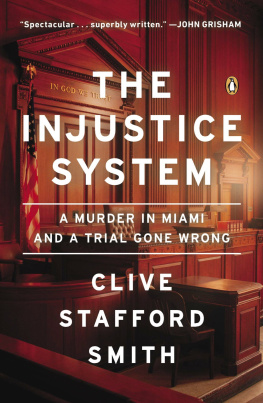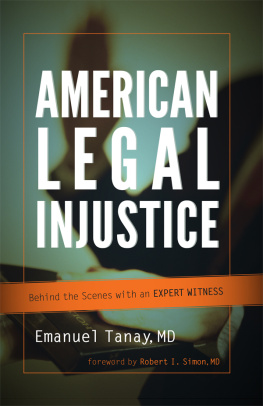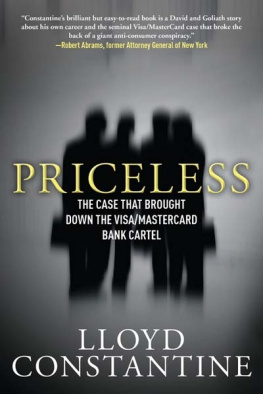This is a work of nonfiction. All the characters and events depicted in this book are real. Much of the material comes from my own observations over a period of eight years, beginning in the winter of 1986, and from repeated interviews with those persons directly involved. The voluminous official record, particularly some fifty thousand pages of deposition and trial transcripts, provided another vital source. The reader can find further information in at the end of the narrative.
Boston
July 1986

The lawyer Jan Schlichtmann was awakened by the telephone at eight-thirty on a Saturday morning in mid-July. He had slept only a few hours, and fitfully at that. When the phone rang, he was dreaming about a young woman who worked in the accounting department of a Boston insurance firm. The woman had somber brown eyes, a clear complexion, and dark shoulder-length hair. Every working day for the past five months the woman had sat across from Schlichtmann in the courtroom, no more than ten feet away. In five months Schlichtmann had not uttered a single word directly to her, nor she to him. He had heard her voice once, the first time hed seen her, but he could no longer remember what it sounded like. When their eyes had happened to meet, each had been careful to convey nothing of import, to make the gaze neutral, and to shift it away as quickly as possible without causing insult.
The woman was a juror. Schlichtmann hoped that she liked and trusted him. He wanted desperately to know what she was thinking. In his dream, he stood with her in a dense forest, overgrown with branches and roots and vines. Behind the woman were several people whose faces Schlichtmann recognized, the other jurors. The woman was trying to decide which path in the forest to take and Schlichtmann was attempting to point the direction. He beseeched her. She remained undecided. A dream of obvious significance, and unresolved when the phone rang and Schlichtmann awoke, enveloped by a sense of dread.
The man on the phone identified himself as an officer at Baybank South Shore, where Schlichtmann had an automobile loan that was several months in arrears. Unless Schlichtmann was prepared to pay the amount dueit came to $9,203the bank intended to repossess the car, a black Porsche 928.
Schlichtmann had no idea whether or not Baybank South Shore had been paid in the last several months, but on reflection he felt pretty certain it had not. He told the banker to speak with a man named James Gordon. He handles my financial affairs, said Schlichtmann, who gave the banker Gordons telephone number and then hung up the phone.
Schlichtmann was still in bed twenty minutes later when the phone rang again. This time the voice on the other end identified himself as a Suffolk County sheriff. The sheriff said he was at a pay phone on Charles Street, two blocks from Schlichtmanns building. He had come to repossess the Porsche. I want you to show me where the car is, said the sheriff.
Schlichtmann asked the sheriff to wait for ten minutes. Then he tried to call Gordon. There was no answer. He lay in bed and stared at the ceiling. Again the phone rang. Are you going to show me where the car is? asked the sheriff.
I think I will, said Schlichtmann.
The sheriff, a large, heavyset man in a blue blazer, was waiting for Schlichtmann at the front door. It was a clear and brilliantly sunny morning in the summer of 1986. From the doorstep, Schlichtmann could see the sun glinting off the Charles River, where the white sails of small boats caught a brisk morning breeze. The sheriff handed him some documents dealing with the repossession. Schlichtmann glanced at the papers and told the sheriff he would get the car, which was parked in a garage three blocks away. Leaving the sheriff at his doorstep, he walked up Pinckney Street and then along the brick sidewalks of Charles Street, the main thoroughfare of Beacon Hill. He walked past several cafs, the aroma of coffee and freshly baked pastries coming from their doorways, past young mothers wheeling their children in strollers, past joggers heading for the Esplanade along the Charles River. He felt as if his future, perhaps even his life, hung in the balance while all around him the world followed a serene course.
In the garage bay the Porsche had acquired a fine patina of city grime. Schlichtmann had owned the car for almost two years, yet hed driven it less than five thousand miles. Throughout the winter it had sat unused in the garage. When Schlichtmanns girlfriend had tried to start the car one weekend this spring, shed discovered the battery was dead. She had the battery charged and took the Porsche out for a drive, but then James Gordon told her the insurance had lapsed and she shouldnt drive it anymore.
Schlichtmann drove the car back to Pinckney Street and handed the keys to the sheriff, who took out a screwdriver and began to remove the license plate. Schlichtmann stood on the sidewalk and watched, his arms folded. The sheriff shook open a green plastic garbage bag and collected audio cassettes and papers from the dashboard. In the cramped backseat of the Porsche, he found some law books and several transcripts of depositions in the civil action of Anne Anderson, et al., v. W. R. Grace & Co., et al. The sheriff dumped these into the garbage bag, too. He worked methodically and did not say muchhed long since learned that most people did not react warmly to his presence. But the transcripts made him curious. Youre a lawyer? the sheriff asked.
Schlichtmann nodded.
You involved in that case?
Schlichtmann said he was. The jury had been out for a week, he added. He felt certain they would reach a verdict on Monday.
The sheriff said hed seen the woman, Anne Anderson, on the television program 60 Minutes. He handed Schlichtmann the garbage bag and asked him to sign a receipt. Then he squeezed his bulk into the drivers seat and turned on the ignition. Nice car, he said. He looked up at Schlichtmann and shook his head. It must be a tough case.
Schlichtmann laughed at this. The sheriff laughed, too, and said, Well, good luck.
Schlichtmann stood on the curb and watched as the sheriff turned the Porsche onto Brimmer Street and disappeared. He thought to himself: Easy come, easy go.











